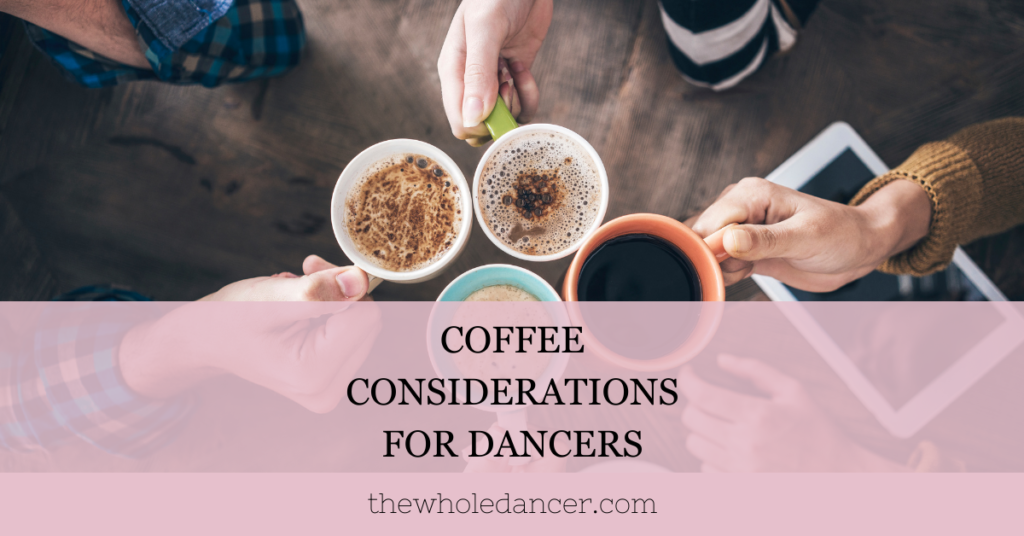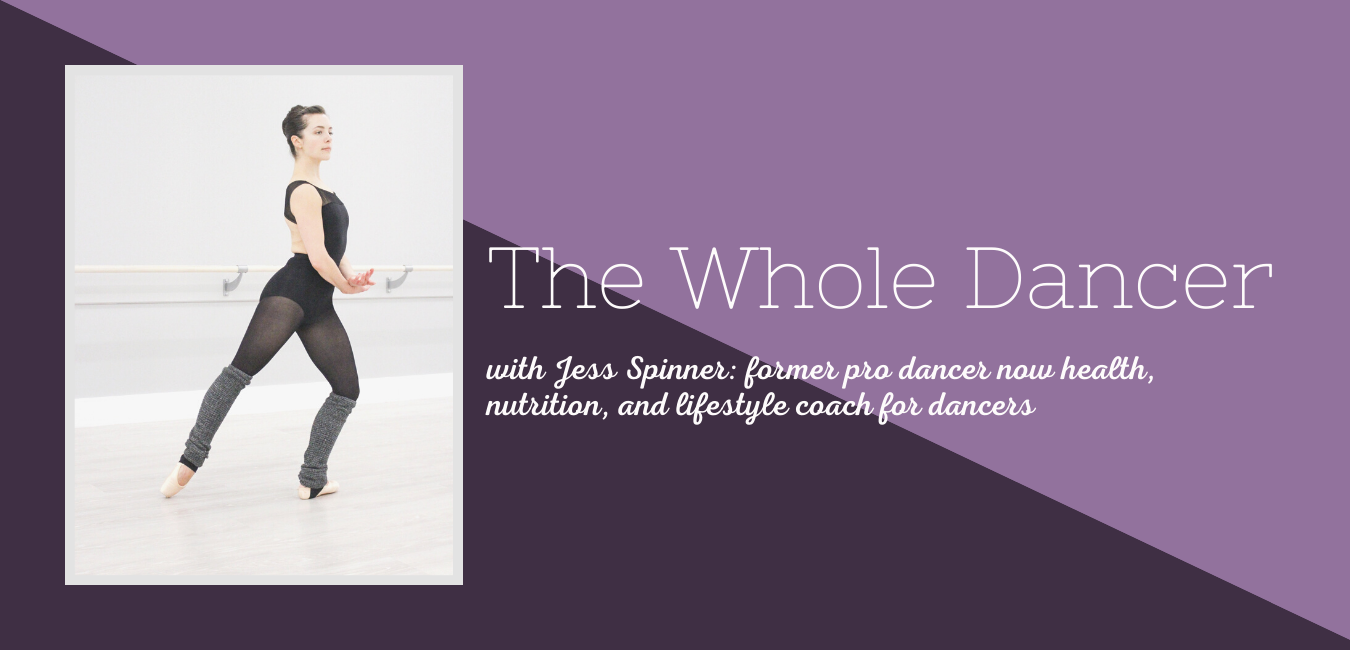Should dancers drink coffee?
As a coffee lover, I want to tell you, YES, drink all the coffee. However, as with all food or drink considerations, be aware of your relationship to coffee and how it works for you personally.
There’s often a lot of talk about how it’s what you put into your coffee that makes it “good” or “bad,” but we’re going to keep that sort of moralizing out of this exploration. If you choose to drink coffee, you should have it the way you enjoy it. I’ll get more into this later in the post.

Benefits of coffee for dancers and athletes.
Coffee definitely isn’t something you need to add to your eating plan if you have never enjoyed it. If you’re already a coffee drinker and it’s something that enhances your life or routines, these benefits can provide some reasons you can be happy about the habit.
A major benefit of coffee is its antioxidant content. Antioxidants reduce oxidative stress and fight inflammation. They can therefore aid in recovery. “Oxidative stress also plays a key role in the pathogenesis of aging. Oxidative stress can be caused by various negative impacts, such as gamma or UV radiation, environmental factors, polluted and poor-quality food, stress, some medications or treatments, smoking, alcoholism, etc…Oxidative stress can be reduced by antioxidant therapy…Coffee is one of the major sources of antioxidants in people’s daily diet.”
If consumed in the 30–60 minutes before dancing, coffee can potentially improve athletic performance by fighting fatigue and enhancing muscle contraction. There’s also a potential for increased attention and cognitive function, which could possibly help you learn and retain choreography or combinations in class.
Drawbacks of coffee for dancers and athletes.
It’s really important that you’re honest with yourself about why you’re drinking coffee. It shouldn’t be used to suppress your appetite or in the place of a necessary meal or snack.
A common coffee concern is that it will cause dehydration. However, a recent review of 10 studies found that consuming up to 550 mg of caffeine per day (or about five 8-oz cups) does not cause fluid-electrolyte imbalances in athletes or fitness enthusiasts. That amount, five 8-oz cups, is excessive. So, even though that amount might be OK in terms of dehydration, it’s not recommended. Water should still be your primary source of hydration.
Coffee doesn’t work for everyone. It can make some jittery and cause quick spikes and dips in energy. This sort of impact varies from person to person. This is where, once again, I’m going to encourage you to become an expert on your body. Don’t adjust your own fuel plan based on what works for your friends or fellow dancers.
Consider the impact of coffee on your sleep. Good sleep is essential for recovery, and it’s something dancers really need to prioritize. So, it’s likely you’ll want to stop consuming caffeine by 2–3 p.m.. Coffee can also increase anxiety and has an impact on cortisol (stress hormone), so stay aware of your stress levels and the potential impact.
Your coffee order…
While you don’t want to use coffee as an appetite suppressant or a meal or snack replacement, strategic timing can make it a more useful addition to your day. If you struggle to get enough fat in your morning meal or you’re looking for a way to increase satiety, you might have coffee with a full-fat milk option. You could use cream, whole milk, or full-fat milk alternatives (like oat or almond).
When you’re out at a coffee shop, keep in mind that dairy milks contain naturally occurring sugar and the non-dairy options at coffee shops are often sweetened versions. Before you add more sugar or syrups to your coffee drink, see how you enjoy the sweetness that already exists. I say this a lot: so many of our food and drink choices are habitual. It’s possible you’re used to something with more added sugar and you’d potentially enjoy something with a more subtle sweetness even more.
Consider the concept of variety here as well. At times when you are in fact hungry and don’t have time for a full meal or enough of a snack, your coffee choice could provide some added protein, calories, and fat that your body needs. You might get a latte in that instance in order to have more milk (of choice) in your coffee drink. Again, this is not in the place of food, it’s just an opportunity to get more of what you need in a convenient form.
Coffee and bone health
While studies in the past have shown an increase in calcium excretion potentially linked to caffeine or coffee consumption, more recent research suggests this may not be the case. A 2019 study shows that coffee may actually be good for bone health.
Coffee dos and don’ts for dancers and athletes…
DO:
- Incorporate it into your day if you enjoy it.
- Stay mindful of your relationship to it. Can you go a day without it?
- Pay attention to how it works for you.
DON’T:
- Drink it after 2 or 3 p.m. (or earlier if needed) because it could disrupt your sleep.
- Start drinking it for the potential benefits.
- Have more than 1–3 cups a day.
- Use it as a meal or snack replacement.
It’s important to also keep in mind that most coffee research is epidemiological. This means it looks at associations more than cause and effect. This leads back to a concept I cover a lot here at The Whole Dancer: bio-individuality. You have to consider how it works, or doesn’t work, for you. Pay attention to what your body is telling you, and adjust your coffee or caffeine consumption accordingly.

Pingback:Is coffee destroying your bones? - The Whole Dancer